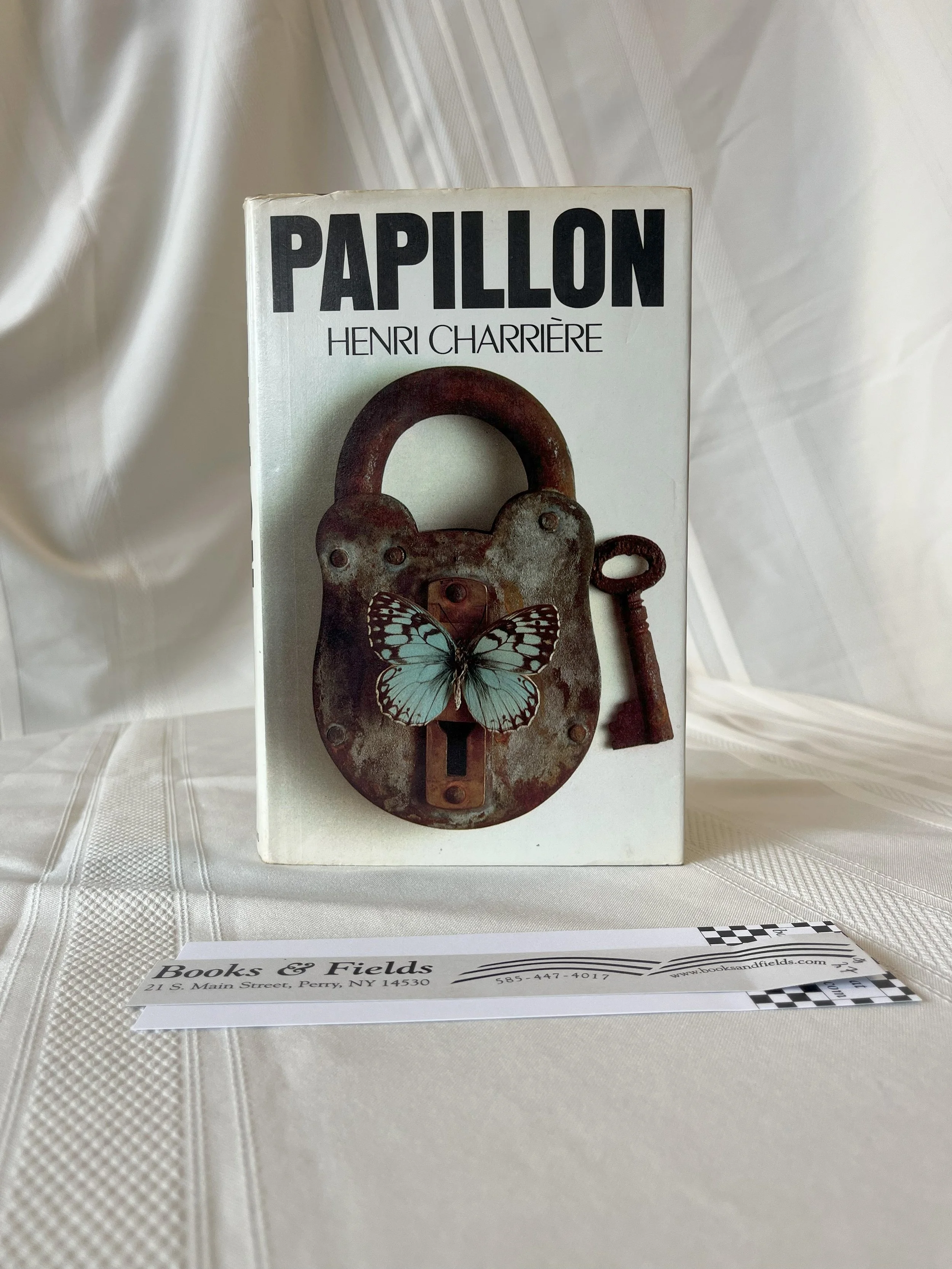 Image 1 of 9
Image 1 of 9

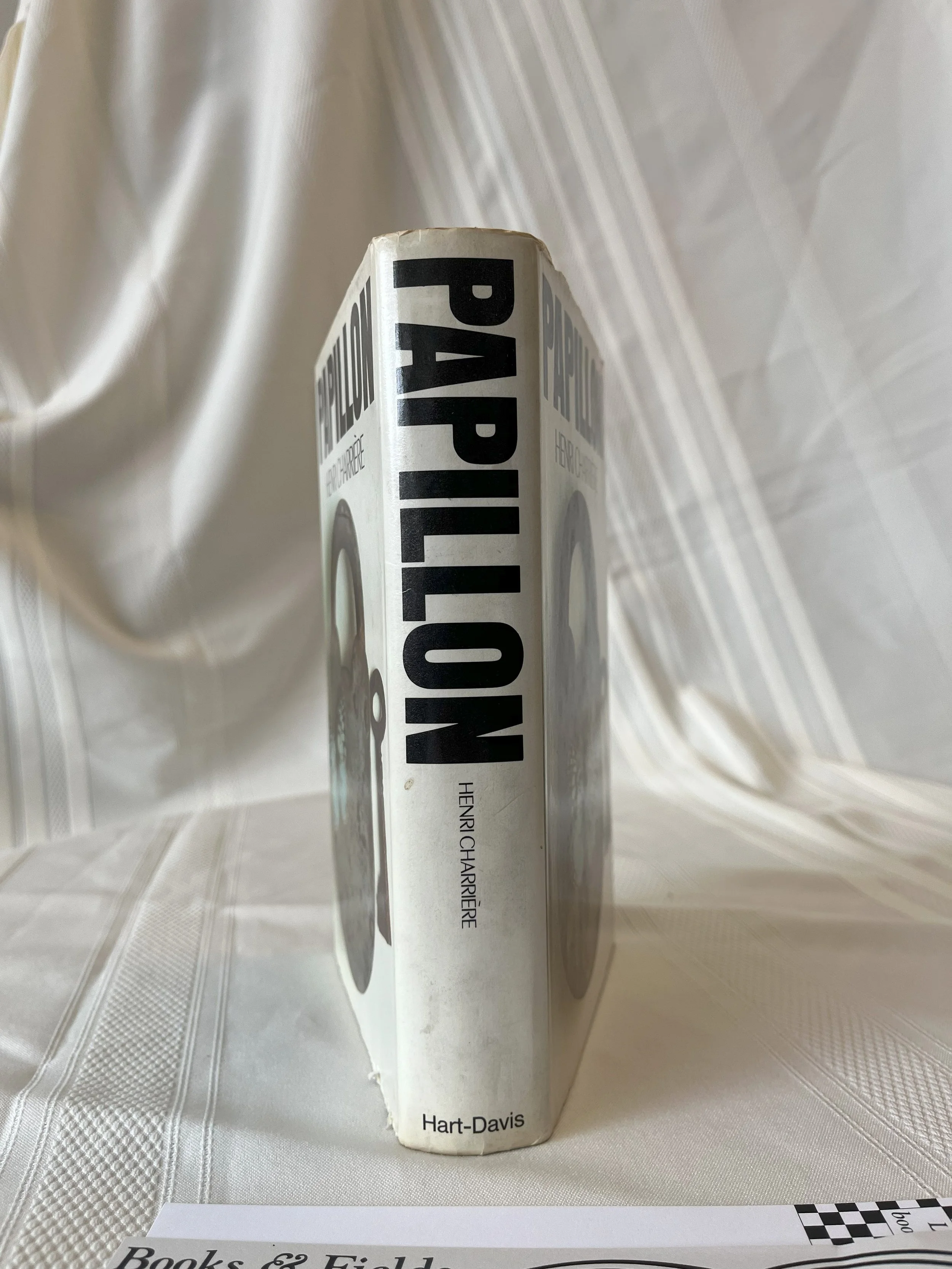 Image 2 of 9
Image 2 of 9

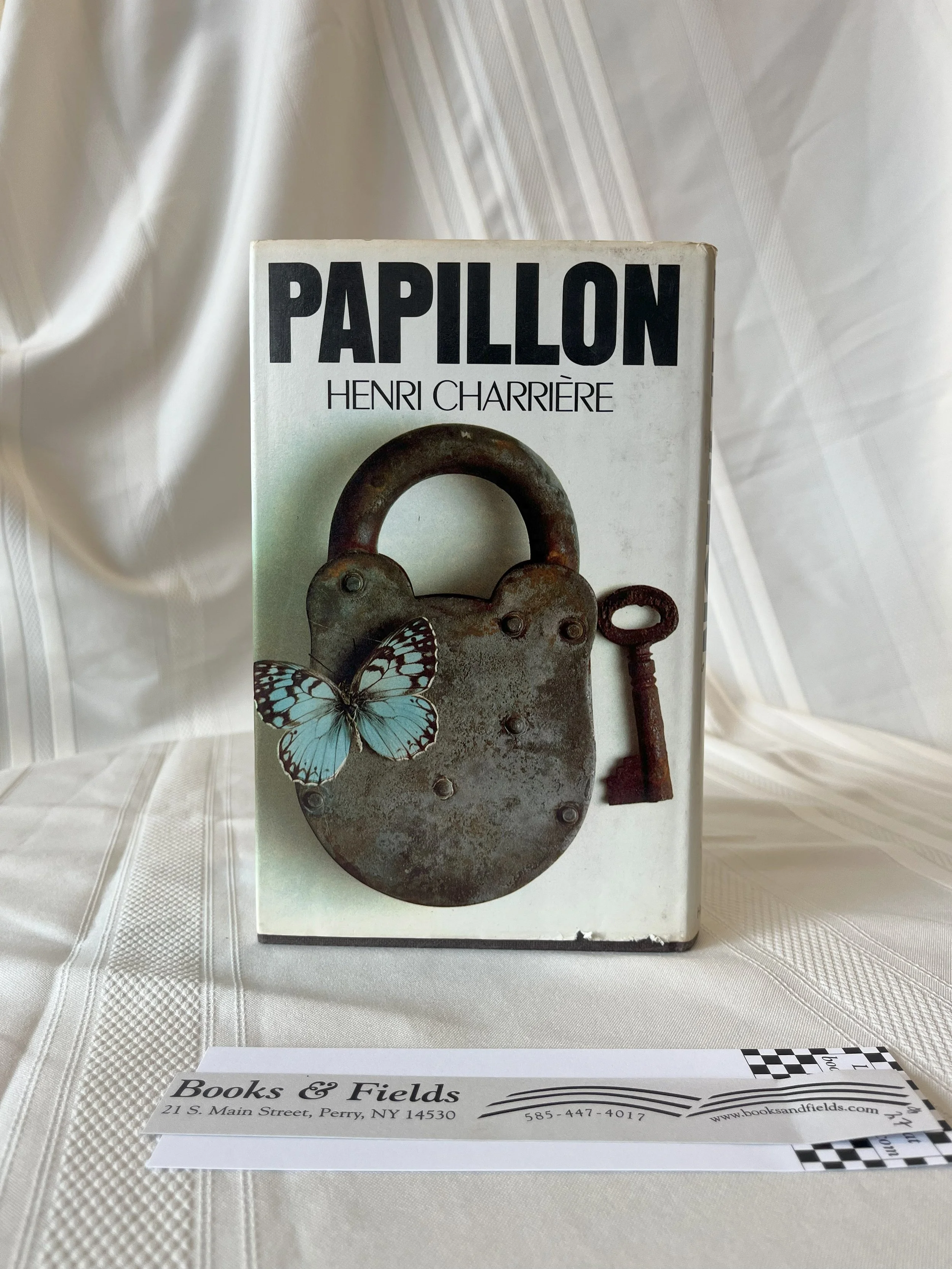 Image 3 of 9
Image 3 of 9

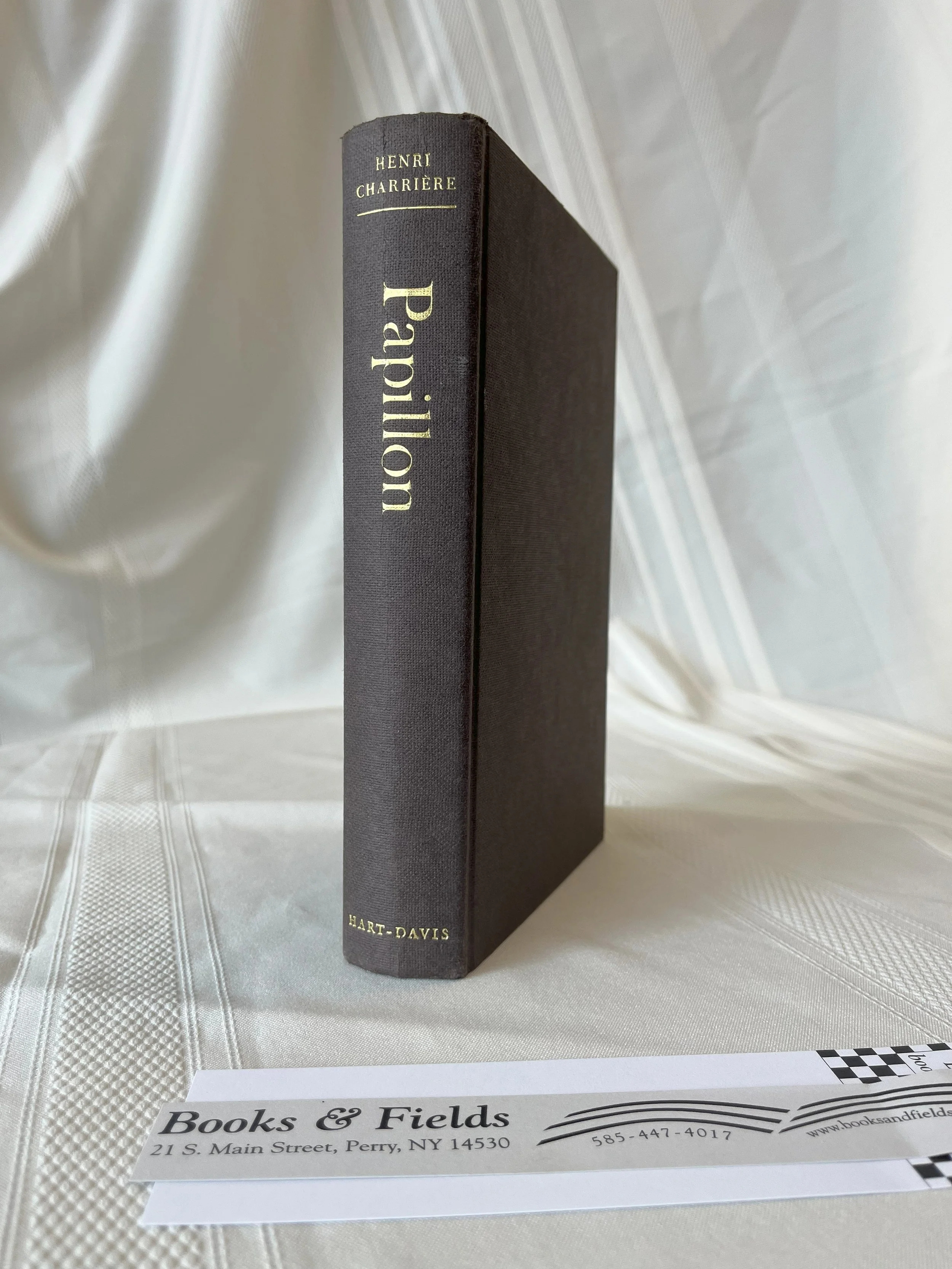 Image 4 of 9
Image 4 of 9

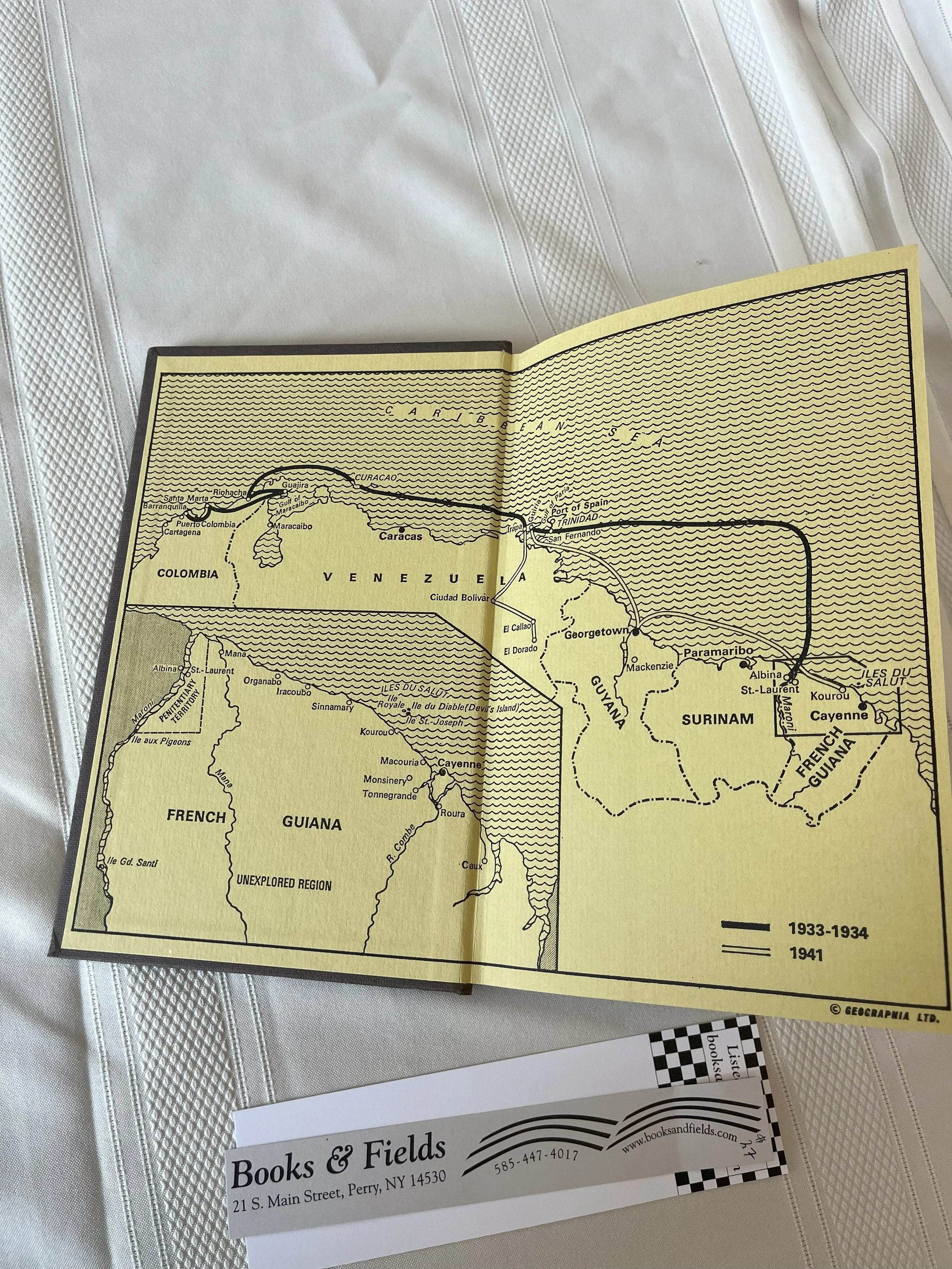 Image 5 of 9
Image 5 of 9

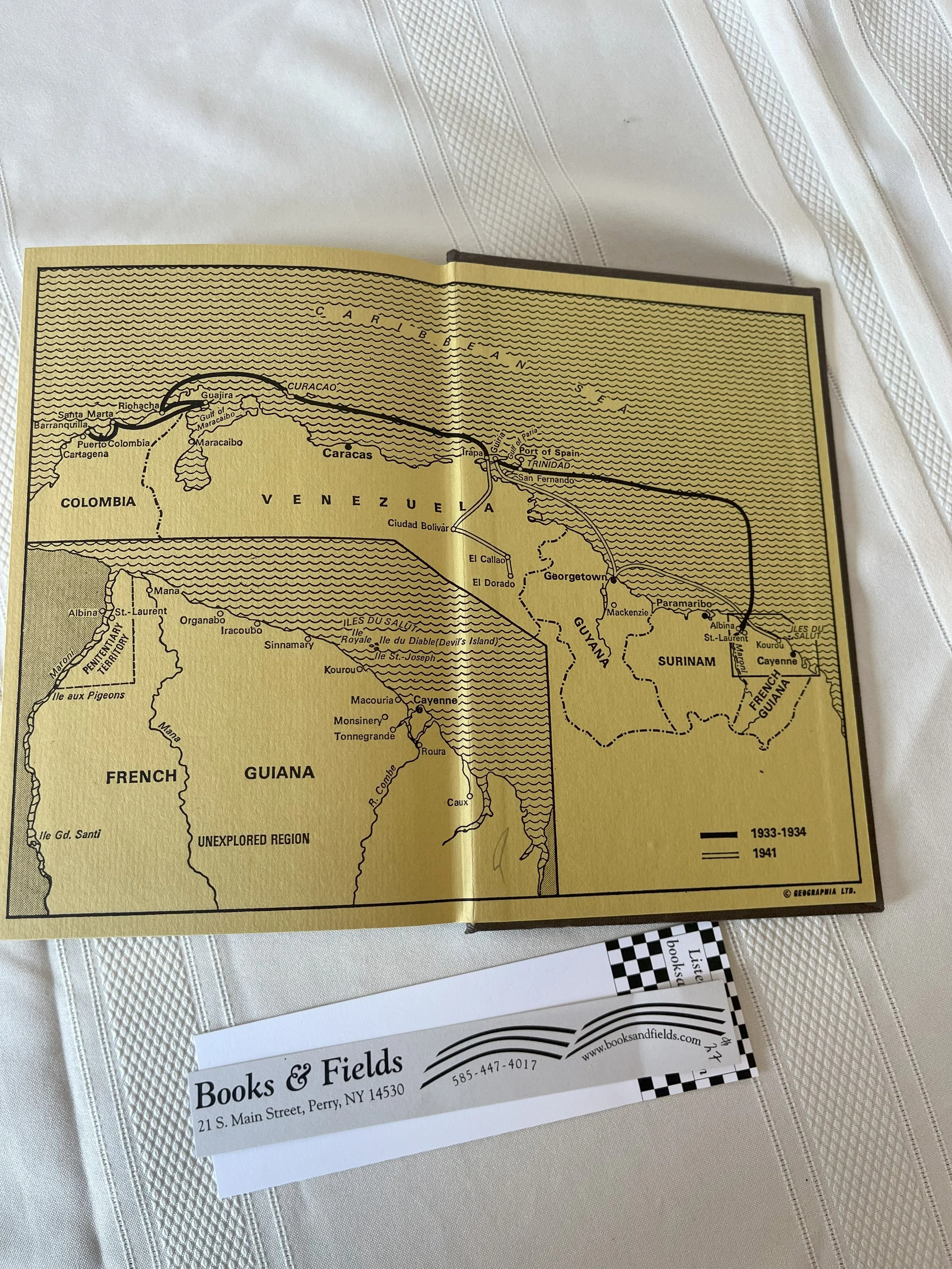 Image 6 of 9
Image 6 of 9

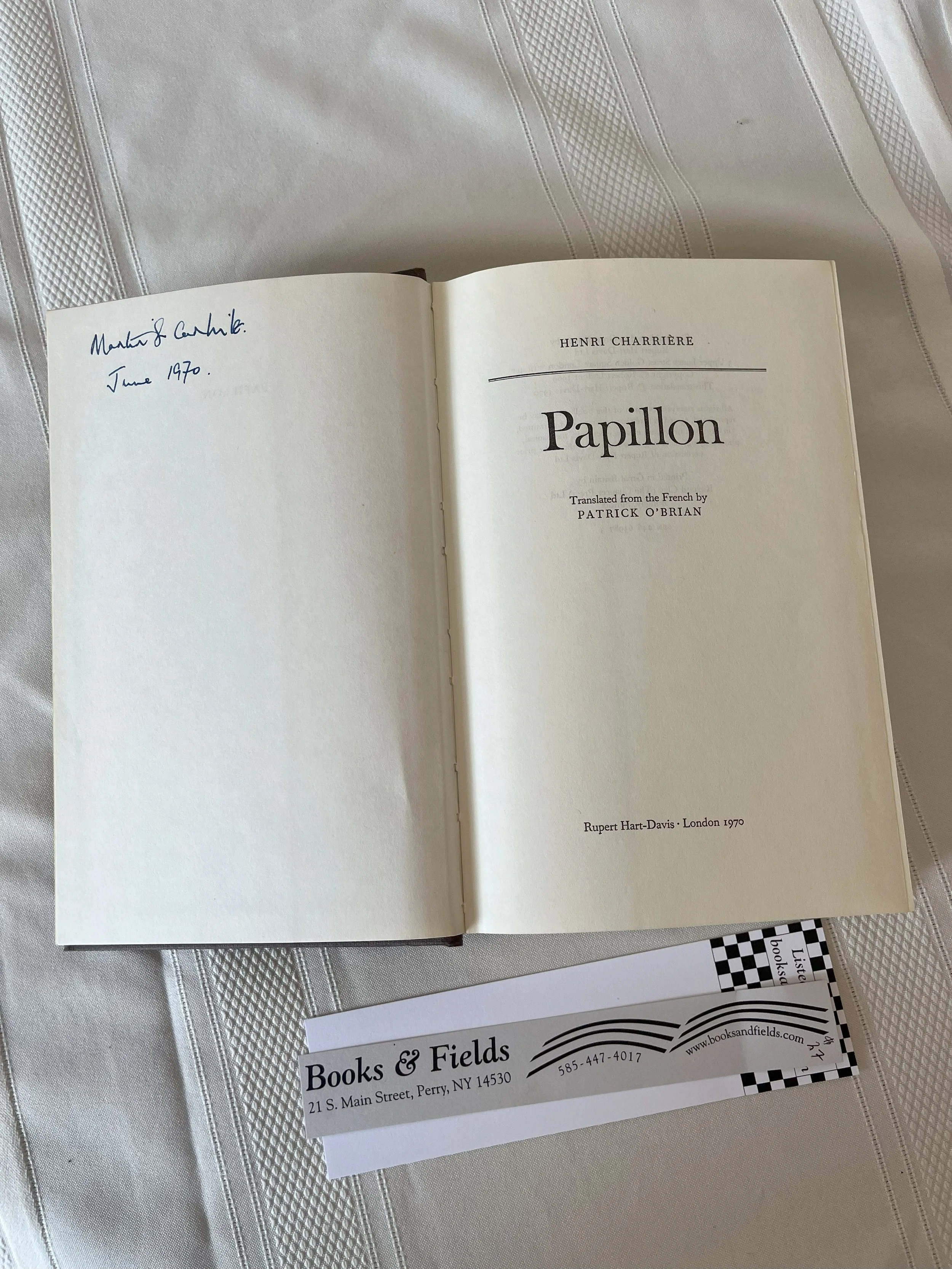 Image 7 of 9
Image 7 of 9

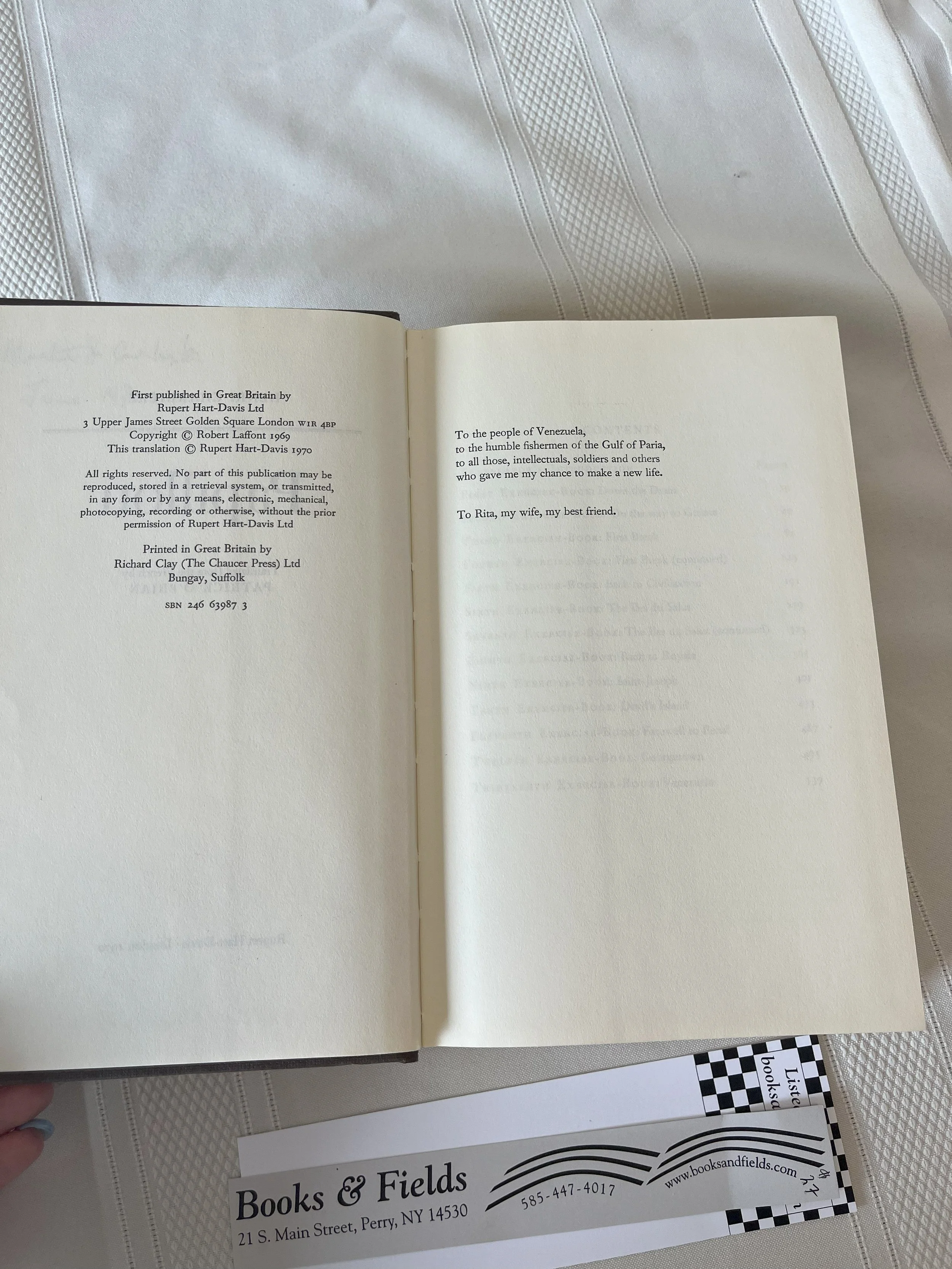 Image 8 of 9
Image 8 of 9

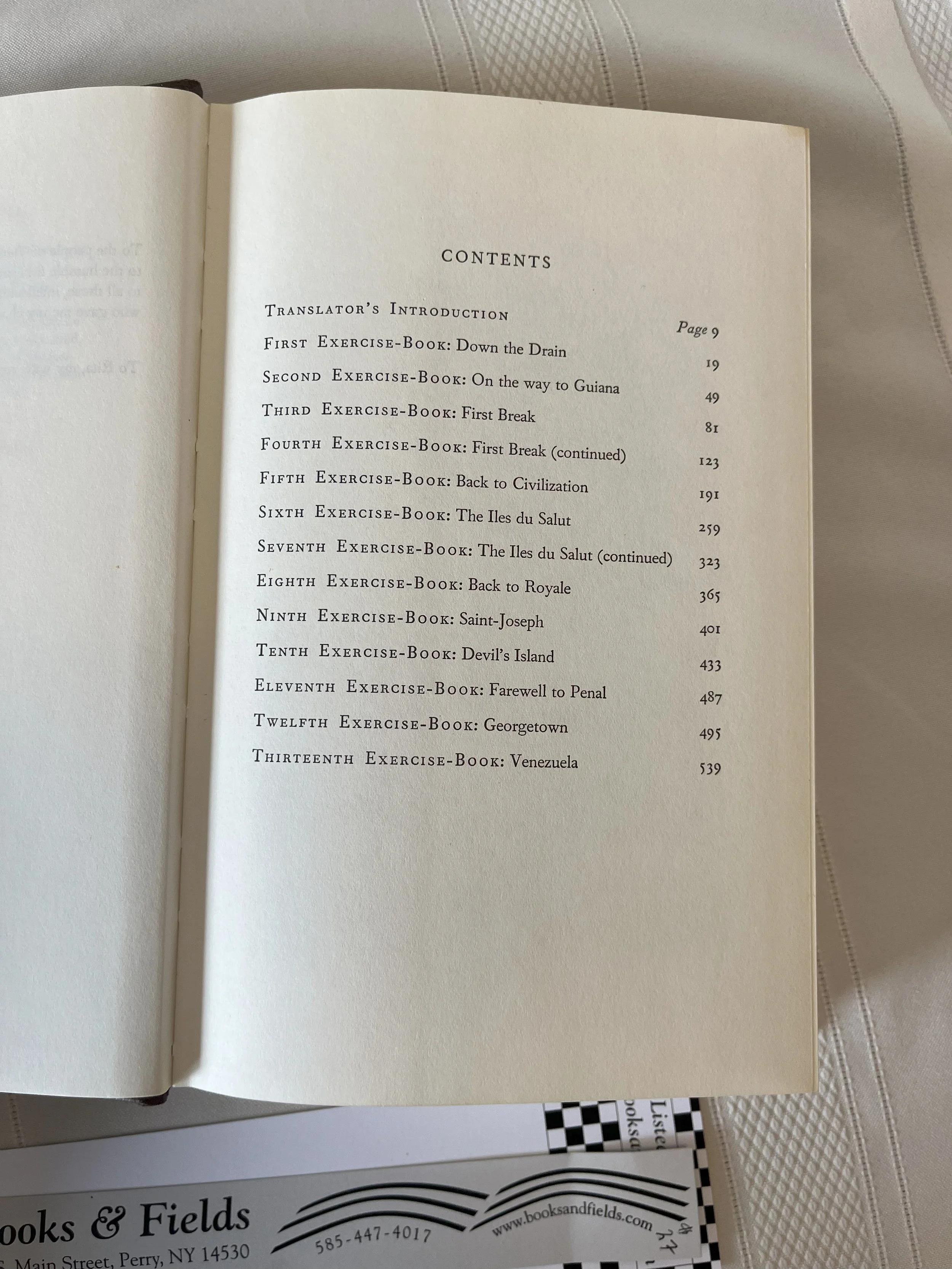 Image 9 of 9
Image 9 of 9










Papillon by Henri Charriere
Author: Henri Charriere
Translated by Patrick O’Brian
Publisher: Rupert Hart-Davis, London, 1970
ISBN: 9780246639875
Hardcover
Page Count: 566
Societies like to think they are progressing, and that they substitute better practices for worse ones as they better understand what works and as they become more humane. There is an element of self-congratulation that becomes self-deception at times, and the penal system is where ancient behaviors can linger for generations if not centuries. Papillon—the inmate Henri Charriere—was exiled to French Guiana in the 1930’s under conditions that would be recognizable to the salt mine slaves that Cicero wrote about. It was if the inmates were swept off the edge of the earth. Naturally, the wardens could engage in unbridled sadism.
What then explains an admitted felon’s life force such that he will endure any indignity, any punishment, for the chance to escape? How can someone summon the nerve to float into the ocean on essentially a raft of sticks and hope to clear the coast and make for civilization? Papillon—ie the Butterfly—did it after many years of cruel servitude and isolation. Yes, he exaggerates and confabulates in the book, but the gist is true. Further, the Guiana penal colony was no wors than others that France maintained in Indochina and Algeria, so it was not an outlier. Now French Guiana is known, if at all, as the base for the European Ariadne rocket program. But there are many bones buried there, and a book like this is worth reading to make us think about what justice is comprised of, and what rights a prisoner surrenders or retains.
Condition: Good to Very good. Dust jacket is present and fully intact, with light bumping. Former owner’s signature is present. There is cracking at one place near the spine a few pages in. Otherwise, the pages are well cut and unmarked and legible.
Author: Henri Charriere
Translated by Patrick O’Brian
Publisher: Rupert Hart-Davis, London, 1970
ISBN: 9780246639875
Hardcover
Page Count: 566
Societies like to think they are progressing, and that they substitute better practices for worse ones as they better understand what works and as they become more humane. There is an element of self-congratulation that becomes self-deception at times, and the penal system is where ancient behaviors can linger for generations if not centuries. Papillon—the inmate Henri Charriere—was exiled to French Guiana in the 1930’s under conditions that would be recognizable to the salt mine slaves that Cicero wrote about. It was if the inmates were swept off the edge of the earth. Naturally, the wardens could engage in unbridled sadism.
What then explains an admitted felon’s life force such that he will endure any indignity, any punishment, for the chance to escape? How can someone summon the nerve to float into the ocean on essentially a raft of sticks and hope to clear the coast and make for civilization? Papillon—ie the Butterfly—did it after many years of cruel servitude and isolation. Yes, he exaggerates and confabulates in the book, but the gist is true. Further, the Guiana penal colony was no wors than others that France maintained in Indochina and Algeria, so it was not an outlier. Now French Guiana is known, if at all, as the base for the European Ariadne rocket program. But there are many bones buried there, and a book like this is worth reading to make us think about what justice is comprised of, and what rights a prisoner surrenders or retains.
Condition: Good to Very good. Dust jacket is present and fully intact, with light bumping. Former owner’s signature is present. There is cracking at one place near the spine a few pages in. Otherwise, the pages are well cut and unmarked and legible.